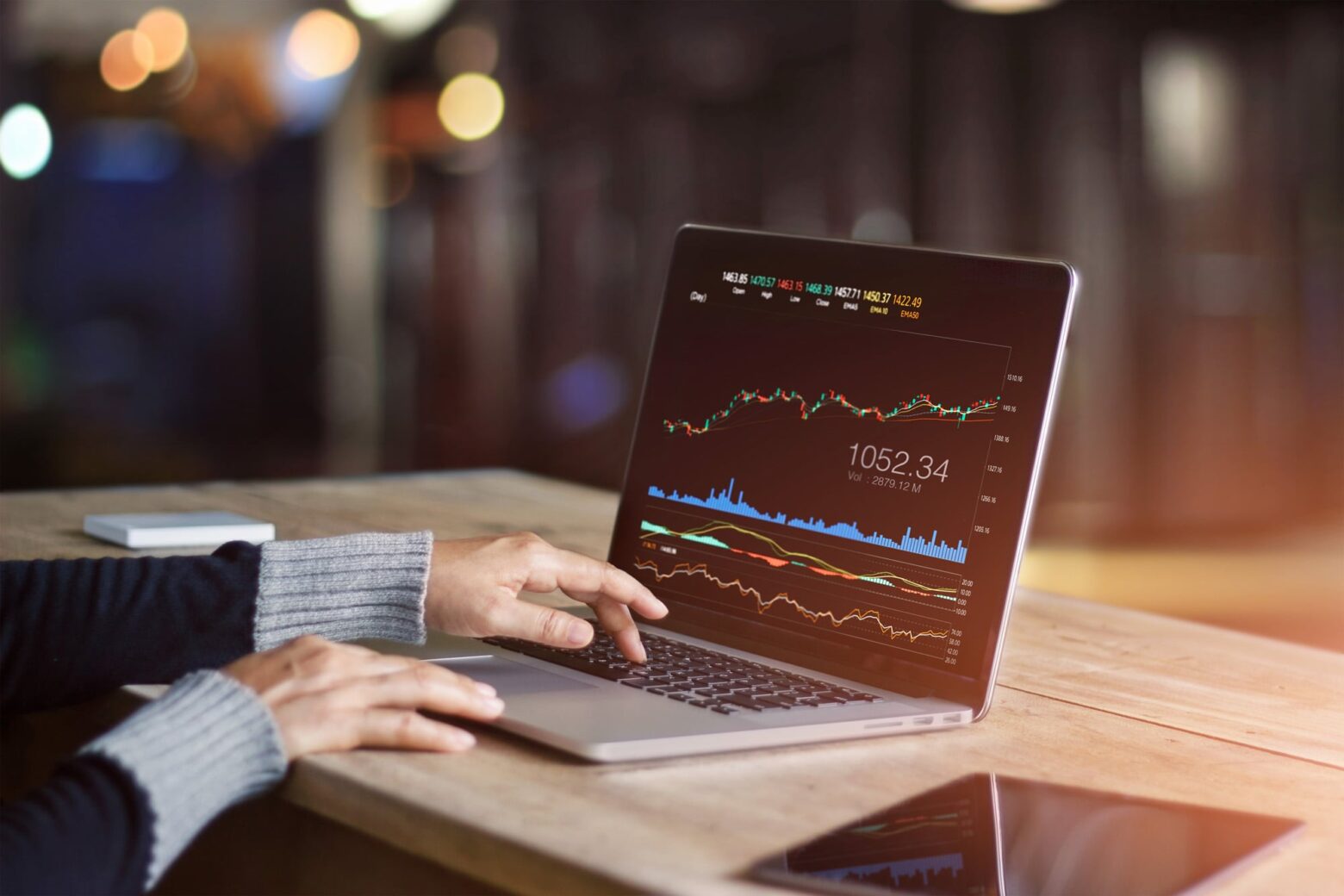Content
The currency is based on the blockchain and has been designed to be compatible with other digital currencies in Africa. Earlier this year, Senegal decided to follow Tunisia’s example and launch its version of a national digital currency. It has the same value as the country’s currency, the CFA franc and can be stored in all mobile money and e-money wallets. In 2015, Tunisia made the decision to boost its eDinar digital currency using the blockchain, with the help of universal contracting platform, Monetas. To get around this, the Riksbank is researching a government-backed digital currency, known as the eKrona, which will serve a digital version of the legal tender. “As digital natives, Chinese welcome further convenience and integrated infrastructure into their lives,” says Chloé Reuter, founding partner of Reuter Communications, a marketing agency based in Shanghai. The two largest digital payments platforms in the country, run by Ant Financial and Tencent respectively, already handle trillions of dollars of payments per quarter.

59 Directive 2018/843 of the European Parliament and of the Council of 30 May 2018 amending Directive 2015/849 on the prevention of the use of the financial systems for the purposes of money laundering or terrorist financing, and amending Directives 2009/138/EC and 2013/36/EU. 54 Directive 2015/849 of 20 May 2015 on the prevention of the use of the financial system for the purposes of money laundering or terrorist financing, amending Regulation No. 648/2012 of the European Parliament and of the Council, and repealing Directive 2005/60/EC of the European Parliament and of the Council and Commission Directive 2006/70/EC.
Cryptocurrencies, Currency Competition, And The Impossible Trinity
Since virtual currencies fall outside the scope of the EU and Belgian legal framework concerning e-money, the E-money Act does not apply to virtual currency exchanges. Virtual currency exchanges currently do not fall under the AML Act, but some of them will be seen as obliged entities within the scope of AMLD5, which is expected to be implemented into Belgian law in 2020. The amended AML Act will not apply to all virtual currency exchanges, however, as it lists only providers engaged in exchange services between virtual currencies and fiat currencies as obliged entities. Virtual currency exchanges such as Binance,73 which only allow users to buy and sell virtual currencies using Bitcoin or Ether, will not be subject to the AML obligations. Although Bitcoin6 is still by far the most well-known cryptocurrency with the highest market capitalisation, altcoins have emerged in the past few years, and they are bringing innovation to the first generation Bitcoin protocol. Several second generation cryptocurrencies and tokens have emerged over the past few years.
There are however exceptions, and notably some jurisdictions are looking to embrace cryptocurrencies. A very recent example is from Turkey where a former industry minister and the current Deputy Prime Minister are talking about a national ‘digital’ cryptocurrency. Whatever people’s views on cryptocurrencies, I believe that they will not go away so therefore cannot be ignored. The Peoples Bank of China has been testing a cryptocurrency based on blockchain technology, since early 2017. The implications are that there will be centrally controlled cryptocurrencies that will flow around the digital world, and that they will potentially have a significant impact on business and traditional banking, as they can work quite differently to Bank ledger based money.
Over the next few years, Bitcoin would see steady, albeit slow, growth, eventually reaching a market cap of $1 million by 2010, valued at $0.50 BTC. As a result, figuring out its worth is incredibly difficult, which is why Bitcoin is known as one of the most volatile assets you can trade in and has drawn countless warnings from the finance industry about the likelihood of losing your money. At the same time, Facebook renamed its Calibra digital wallet ‘Novi’, presumably to emphasise that its ambitions extend beyond simply serving as a personal storage mechanism for Libra value.
How Can I Spend Bitcoin?
And whilst many are concerned that the price of bitcoin is over-hyped, the technology behind the currency, the blockchain, is being used by countries and initiatives to spin off their own digital currencies. “Volatility in the main altcoins is going to be a fact of life until we see greater trading volumes, however as regulation is introduced and more people use digital currencies as a better way of exchanging value, cryptocurrency will become part of day-to-day financial transactions”, Swanepoel said. In a release last week, the European Central Bank announced that it had joined forces with the Bank of England, the Bank of Canada, the Bank of Japan, the Swiss National Bank, the Bank for International Settlements and Sweden’s Sveriges Riksbank to “assess potential cases for a central bank digital currency in their home jurisdictions”. However, Bolivia stands alone in Latin America with its decision to ban digital currencies. Colombia’s central bank, the Superintendencia Financiera de Colombia, had considered a ban on Bitcoin but fortunately for crypto fans the restrictions never came into place.
- Second, the underlying technology is different as the blockchain ledger will be controlled by the government and not distributed across the system.
- With the Bank of England about to see a changing of the guard as Mark Carney prepares to vacate the governor’s chair for former FCA head Andrew Bailey, one of the things to land on the desk of the new central bank boss will be the possibility of a ‘digital pound’.
- The monetary argument for it replacing fiats is the same as that held by the crypto zealots.
- Payments Cards & Mobile is the go-to market intelligence hub for global payments news, research and consulting.
The announcement was the first of its kind made by the central bank on the subject of digital currency, according to the US Law Library of Congress. Second, the underlying technology is different as the blockchain ledger will be controlled by the government and not distributed across the system. Finally, it is intended to operate exactly like a normal currency and integrated throughout the commercial system. Because the ledger is held by the government and is not distributed to mining nodes, the currency won’t have the time lags associated with bitcoin, making it practical to use in everyday situations. Also, because it is released by the government and pegged to the valuation of the yuan, it won’t be traded in fractions. It is likely to be seamless; most consumers won’t really notice a huge difference between using DCEP and existing digital payments platforms. 44 See Section II, ‘Virtual currencies as financial instruments or investment services’.
115 The CJEU first clarified that the exchange of different means of payments constitutes a supply of services within the meaning of Article 24 VAT Directive, since Bitcoins cannot be characterised as tangible property as referred to in Article 14 VAT Directive. The CJEU went on to recall that the supply of services is affected for consideration only if there is a direct link between the services supplied and the consideration received. 106 On 2 March 2018, Mr Koen Metsu asked several questions on virtual currencies in Belgium to the Minister of Justice, Koen Geens, including the quantity of Bitcoins that the government has confiscated since January 2015; this question has not yet been answered by the cabinet of Koen Geens (Bulletin No. B152, q. 2531). 94 The hacking of virtual currency wallets, which can be held online, locally on a computer’s hard drive, a USB stick or even offline in cold wallets, is certainly one of the most sensitive issues. For more information on virtual currency wallets and security risks, see T Spaas and M Van Roey, ‘Quo Vadis Bitcoin?
The FSMA also describes several dishonest practices that have been identified in relation to derivative cryptocurrency products where the distribution of such derivative financial products to consumers has led to significant losses to the investors in question. This clearly indicates that the FSMA intends to use this regulation to protect small retail customers and investors against these very complicated financial products. Before deciding to trade in financial instrument or cryptocurrencies you should be fully informed of the risks and costs associated with trading the financial markets, carefully consider your investment objectives, level of experience, and risk appetite, and seek professional advice where needed. Trading in financial instruments and/or cryptocurrencies involves high risks including the risk of losing some, or all, of your investment amount, and may not be suitable for all investors. Prices of cryptocurrencies are extremely volatile and may be affected by external factors such as financial, regulatory or political events.
I General Provisions Of Belgian Criminal Law
Bolivian citizens will also be prohibited from denominating prices in a currency that has not been approved by the country’s authorities. Bitcoin is facing another crackdown from government authorities after the El Banco Central de Bolivia banned any currency that is not issued or regulated by the Bolivian government. Get WIRED Daily, your no-nonsense briefing on all the biggest stories in technology, business and science. The digital ruble would exist along with cash and non-cash rubles, and would allow private and corporate users to freely transfer digital rubles to their electronic wallets. The adoption of the new form of currency would also require amending legislation. According to an RT report, most lenders expressed their support over a two-level model of the digital ruble.

Ignoring the technology behind cryptocurrencies, as well as the use of them, is not really an option. The banks currently have a complex range of systems to support their traditional businesses as well as the myriad of regulatory and compliance requirements. Cryptocurrency is actually designed to remove intermediaries, which is where banks operate. Cryptocurrencies also introduce a new technology paradigm for storing and exchanging value. This does not lend itself to minor changes or tweaks, or adding another layer on to already complex systems. This move to cryptocurrencies does however offer opportunity for ‘Fintechs’ as well as emerging challenger banks. The dilemma that established banks or financial institutions have is that they will eventually have to operate with cryptocurrencies, which means spending money on technology, systems, people and processes, as well as potentially reducing margins.
On the contrary, someone who bought one Bitcoin on 31 December 2017 at €11,050 and sold it on 31 December 2019 at €6,385.83 would have made a €4,664.17 loss. Cryptocurrencies raise important taxation issues, especially in relation to personal income tax and VAT. The question that arises is what can or should a government do with such sum of virtual currencies? Given the advantages that virtual currencies represent for criminals in conducting their illegal activities, Article 505, and the seizures of assets it can lead to, is one of the most useful provision of the Criminal Code to fight illegal uses of those currencies.
Further, many coins have been famously lost to us by early adopters who left after the cryptocurreny’s early boom days and have since lost their keys. Rather like if someone had thrown unknown pounds of gold into a volcano or the bottom of the sea. The monetary argument for it replacing fiats is the same as that held by the crypto zealots. Because it isn’t controlled by any one government, its value is beyond any one government’s control. The report included a lot of data but all of the data is reliable and regularly available. Information on fiat currencies are maintained by the governments that maintain those currencies. It was the first of 31 tweets in a thread that explained their 2019 Second Quarter Report.

This is why China has so resolutely sought to block cryptocurrencies in the country, issuing a slew of legislations starting in 2017 that banned initial coin offerings and exchanges from trading from servers in China or using Chinese Yuan, the sovereign currency which is not easily exchanged abroad. Last year the government moved to ban crypto-mining – prior to the regulations 70 per cent of the world’s bitcoin were mined in China. There are three main differences between DCEP and existing cryptocurrencies such as bitcoin, according to Terry Liu, CEO of VoneChain Technology, a blockchain consultancy based in Shanghai that is working closely with various government agencies on projects related to its rollout. Bitcoin and related currencies are mined, which means the source is decentralised and controlled by an algorithm.
Bitcoin: Boiling The Oceans?
People’s reserve of confidence has evaporated and it’s going to take another government to restore that, regardless of developments in the fintech industry. Mr. Les has been deeply involved with Bitcoin since 2013, with significant experience in both mining and as an engineer studying protocol development and contributing to open-source projects. He has served as an independent director on the Company’s Board of Directors since 2017, and he will continue to remain as a member of the Board of Directors. As CEO, he will be the driving force behind the Company’s strategic focus on Bitcoin mining, and its mission to become one of the most relevant and significant companies supporting the Bitcoin network and greater bitcoin ecosystem. Recent national developments are bringing blockchain to mainstream transactional environments, such as the letter of the OCC], Banking for All Act, and the appointment of Mr.
and sold that same amount of utility tokens four years later on 7 January 2020 at US$0.00139 would have made approximately US$81.010 in profit in just four years.24 Even if the primary purpose of Siacoin is utilitarian, it has been functioning in practice as a means of investment. The US tax authorities ruled in 2014 that Bitcoins will be treated as “property” for tax purposes, not a currency.
It will also remove the need for additional infrastructure to be introduced to enable businesses to accept the digital currency. The sovereign is the world’s first decentralised digital national currency, and once issued will become official legal tender of the archipelago alongside the US dollar. Looking away from crypto and toward the underlying blockchain technology, an agreement signed on the sidelines of the glittery Davos summit last week has laid the groundwork for what is supposedly the world’s largest “ecosystem” for cryptographic, blockchain and distributed ledger technologies, to be more snappily known as Crypto Valley.
Leveraging 15 years of data across 43 markets, our award-winning resources and expertise provide impartial, up to date analysis on the issues shaping the future of payments. From 14 September 2021, SCA will be required for all payment transactions in the European Economic Area, aiming to lower fraud and increase security for customers. SCA essentially means requesting two forms of authentication for every transaction above the contactless limit. Digital currencies will also need to comply with the PSD2 banking regulation and require Strong Customer Authentication to validate users at the point of transaction. And yet, amid the chaos and lack of information, there is evidence cryptocurrency is making some sort of difference. Venezuela’s petro national cryptocurrency was launched by President Maduro in October 2018 as an alternative to the ever-declining bolivar.
This has been seen mainly by early adopters, however the adoption wave is growing. A significant driver is convenience from an end-user point of view to exchange value with lower cost, immediacy, less intrusion and scrutiny. Some are also seeing cryptocurrencies as a convenient store of value, often ignoring the volatility, but rather the ease of exchanging and storing value in comparison to traditional equities as an example.










